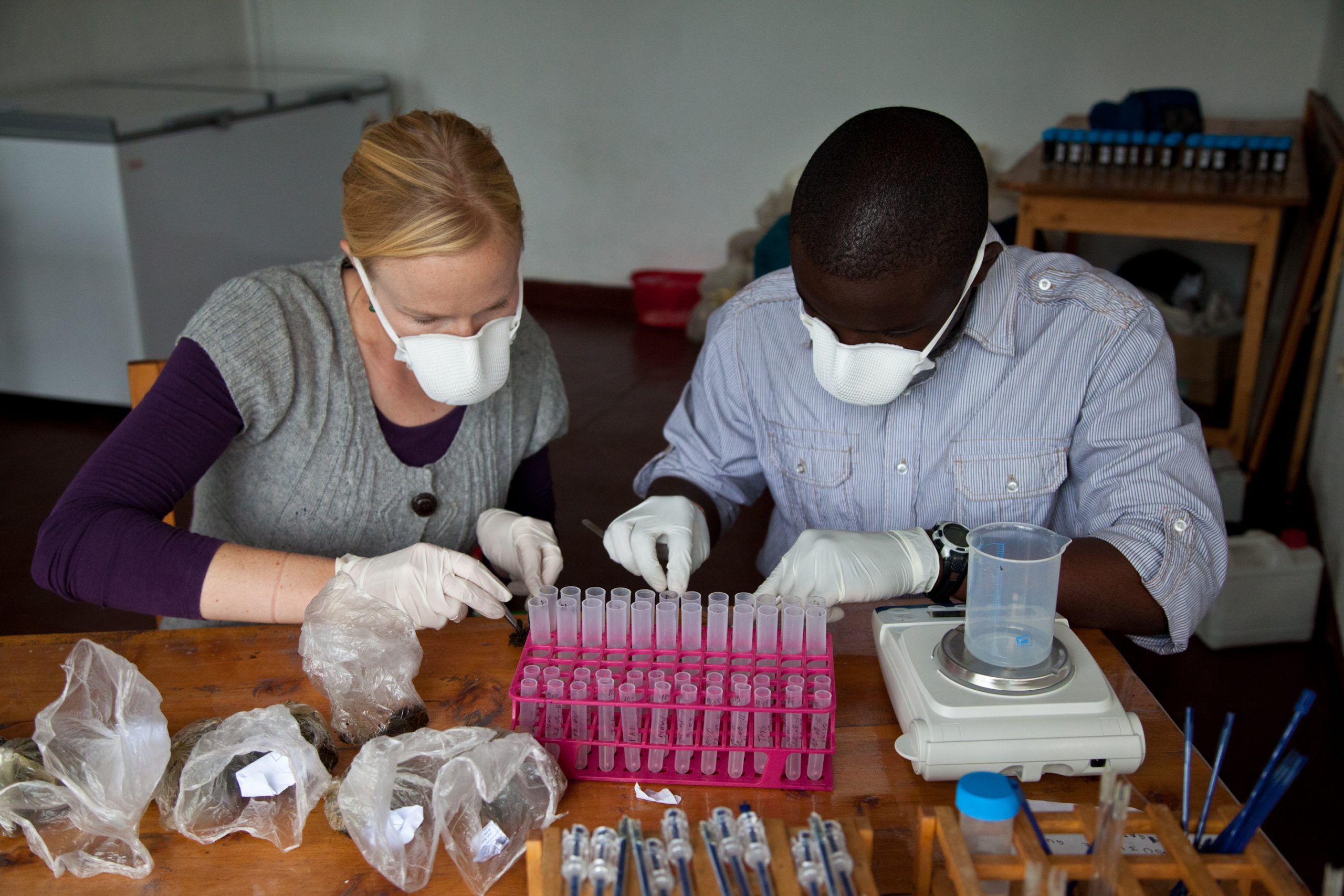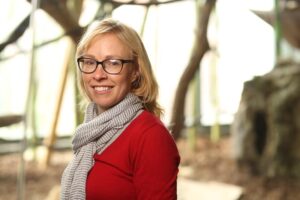I am a biological anthropologist who studies the ecological causes and evolutionary consequences of social behavior. Humans and many other animals develop myriad social relationships across the course of their lifetimes. My lab members and I study how these relationships develop and are maintained, what their consequences are for participants, and how individual relationships impact evolutionary dynamics. I also study how relationships and physiology impact one another, and how their interactions affect health, longevity, and reproductive success. My primary field and laboratory research focuses on a wild population of endangered mountain gorillas in Rwanda that has been monitored for more than 50 years. In addition to studying gorillas, I also work on complementary research questions about human and non-human primate health, evolution, and sociality using the Cebu Longitudinal Health and Nutrition Survey (a long-term study of humans in Cebu, the Philippines), and data collected for the Amboseli Baboon Research Project, in southern Kenya. My research program integrates behavioral, demographic, genetic, ecological, and physiological data to gain a richer understanding of the evolution of mammals generally, and the hominid lineage specifically.

Additional Information
What are some of your most interesting projects?
The things that happen to us early in our lives often have major impacts on our health and wellness many years later. Interestingly, this phenomenon does not appear to be unique to humans; similar effects are observed in many species. My colleagues and I are working to understand why and how this happens. Using data from long-term primate field sites, we are examining the connections between negative experiences during the nonhuman primate equivalent of childhood, and the animals’ longevity, health, and social relationships as adults. One of the interesting challenges for this project is figuring out how to define and measure ‘health’ in other animals–and in particular, in animals that we can’t touch due to ethical, safety, and conservation concerns. Advances in non-invasive physiological research have improved our ability to determine what is happening inside their bodies without the aid of (e.g.) blood or tissue.
How did you end up where you are today?
As a child, I was endlessly fascinated with other animals and the way they behaved. Everyone, including me, assumed that I would be a veterinarian when I grew up, but I was never excited about the idea of practicing medicine. In college, I accidentally stumbled across a class on primate behavior, and fell completely in love with the subject. I was fortunate to have faculty mentors who encouraged my interest in research, and 20+ years later, now I am working to help others establish their own research careers. Having a job that involves asking and answering questions about what we do (and don’t!) have in common with other species is a dream come true.
